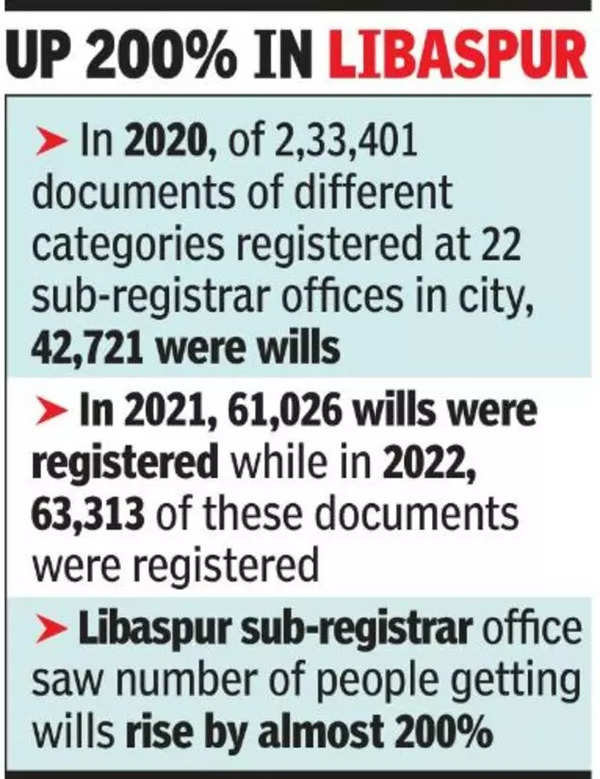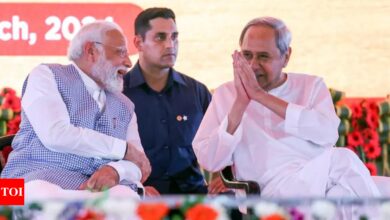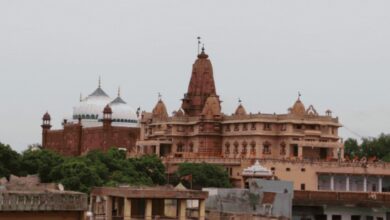Registration of wills gains ground in Capital | India News

[ad_1]

The sub-registrar office of Libaspur saw the number of people getting their wills increase by almost 200%— from 2,898 in 2020 to 8,523 in 2022. The sub-registrar office of Narela also saw a similar jump, although the number of the documents was much less. In 2020, 344 people registered their wills in Narela while the number increased to 1,009 in 2022. In the Mehrauli office, 667 wills were registered in 2022, which increased by 116% to 1,471 in 2022.
In terms of actual numbers, the sub-registrar offices of Kashmere Gate, Model Town, Punjabi Bagh and Rohini witness more people walking in to get their wills registered in comparison to INA, Seelampur, Sarojini Nagar, Seelampur and Basai Darapur.
The Kashmere Gate sub-registrar office, which covers Kamla Nagar, Shakti Nagar, Maurice Nagar, Civil Lines and neighbouring areas, saw 8,307 wills getting registered, only second to Libaspur, followed by Punjabi Bagh (7,383), Kanjhawla (6,555), Model Town (5,368) and Rohini (4,028).
While writing a will and registering it is an important part of financial planning in developed countries, lawyers said the Indians were yet to understand its necessity and they still confuse it with nomination. “People still think it is unnecessary and the division of their property and wealth among the legal heirs was obvious and not required to be documented. Some also believe that it is something which has to be done towards the end of life and then it is too late,” said Rajeev Ranjan, an advocate in the Delhi high court.
Interestingly, in the year 2020, when the Covid pandemic was at its peak in the country, some offices of sub-registrars witnessed more people getting their wills registered in comparison to other areas. In Kashmere Gate office, 8,396 wills were registered in 2020 while the number came down to 6,780 in 2021. Similarly, 3,600 people executed and registered their wills in 2020 while the number dropped marginally to 3,390.
Of 2,33,401 documents of different categories registered at 22 sub-registrar offices in the capital in 2020, 42,721 were the wills. In 2021, 61,026 wills were registered while in 2022, 63,313 of these documents were registered by the sub-registrar offices.
However, every third document registered by a sub-registrar across the city is the sale deed of a commercial, residential or an agricultural property. In 2021, 72172 sale deeds were registered while the number increased to 1,11,902 in 2021 and 1,25,772 in 2022, the records maintained by the revenue department show.
The earnings of the Delhi government through the sale of stamps and registration of documents are generally about 10% of the total tax revenue in a year. The government has estimated to collect about Rs 6,000 crore through stamp and registration in 2023-24.
#Registration #wills #gains #ground #Capital #India #News





